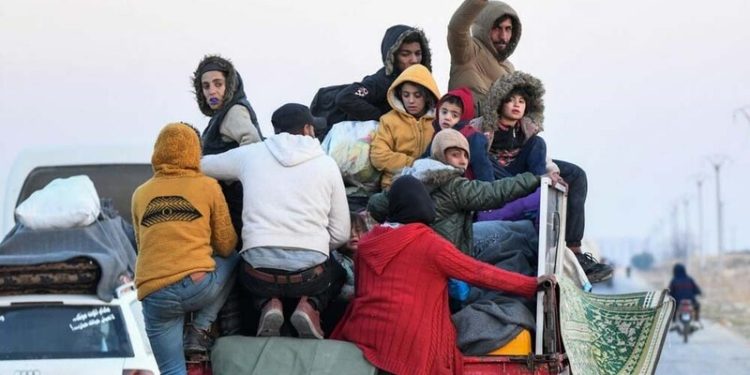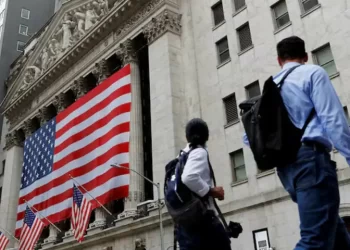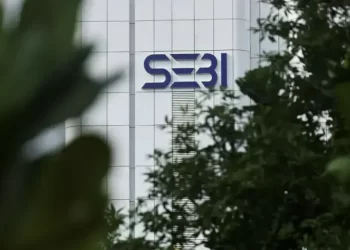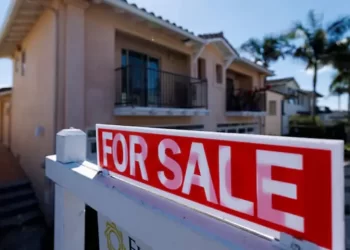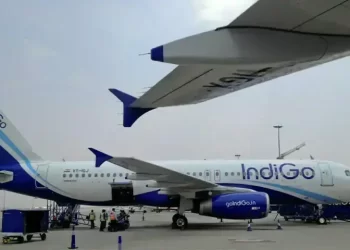BEIRUT: Rebels advanced on Syria’s fourth-largest city Hama Tuesday, buoyed by their lightning capture of swathes of the north in an offensive that ended four years of relative calm.
The sudden flare-up in the more than decade-old civil war in Syria just as a fragile ceasefire took effect in neighbouring Lebanon drew appeals for de-escalation from across the international community.
Group Hayat Tahrir al-Sham (HTS) and its allies met much tougher resistance in the countryside north of Hama than they did in the Aleppo region on Friday and Saturday, a Britain-based war monitor said.
The Syrian Observatory for Human Rights reported the heaviest fighting with government forces so far as the offensive entered its seventh day.
“Clashes have erupted in the northern Hama countryside, where rebel factions managed to seize several cities and towns in the last few hours,” the Observatory said.
“Syrian and Russian air forces carried out dozens of strikes on the area.”
Syrian state media reported that the two air forces had bombed the rebels in their Idlib stronghold as well as their vanguard in Hama province.
Russia is a key ally of President Bashar al-Assad. Its 2015 intervention in the Syrian civil war turned the tide in his government’s favour but since 2022 the Ukraine war has tied down much of its military resources.
Hama was a bastion of opposition to the Assad government early in the civil war.
For many of the city’s residents, the scars of a 1982 massacre by the army, aimed at crushing the banned Muslim Brotherhood, have yet to heal.
But its capture by the rebels would “pose a threat to the regime’s popular base”, Observatory director Rami Abdel Rahman said.
The countryside west of the city is home to many Alawites, followers of the same offshoot of Shiite Islam as the president and his security chiefs.
An AFP journalist in the northern Hama countryside saw dozens of Syrian army tanks and military vehicles abandoned by the side of the road leading to Hama.
“We want to advance on Hama after combing” towns that have been captured, a rebel fighter who identified himself as Abu al-Huda al-Sourani told AFP.
The United Nations says nearly 50,000 people have been displaced by the fighting since it began last Wednesday. Hundreds of people have been killed, most of them combatants, according to the Observatory.
The mounting exodus of civilians just as winter takes hold has triggered international alarm.
UN chief Antonio Guterres said he was “alarmed” by the violence and called for an immediate halt to the fighting.
The European Union called on “all sides to de-escalate”.
Speaking to reporters Monday, US State Department spokesman Matthew Miller said: “We want to see all countries use their influence — use their leverage — to push for de-escalation, protection of civilians and ultimately, a political process forward.”
Assad is no longer the pariah in the Arab world that he was at the height of the civil war.
Egypt, Jordan and the Gulf Arab states have all expressed concern over his government’s losses. At a summit in Cairo last year, Arab leaders agreed to reinstate Syria’s membership of the Arab League, marking the start of a slow rehabilitation.
HTS is rooted in Al-Qaeda’s former Syria branch and has faced accusations of human rights abuses including torture.
One anxious resident of Syria’s second city Aleppo, who declined to be identified, spoke of panic as the rebels overran it on Friday and Saturday.
“There were terrible traffic jams — it took people 13 to 15 hours to reach Homs,” he said.
Normally, it would take just a couple of hours to reach Syria’s third city, which lies between Hama and Damascus, he added.
